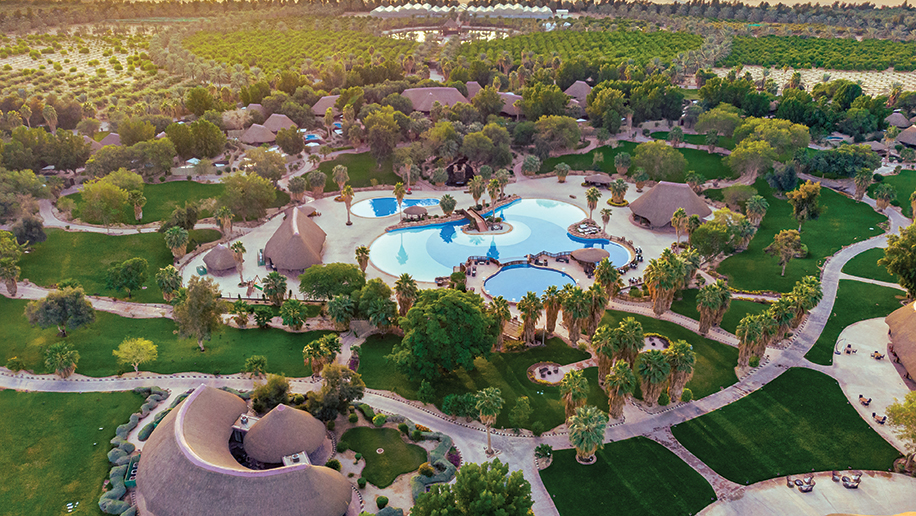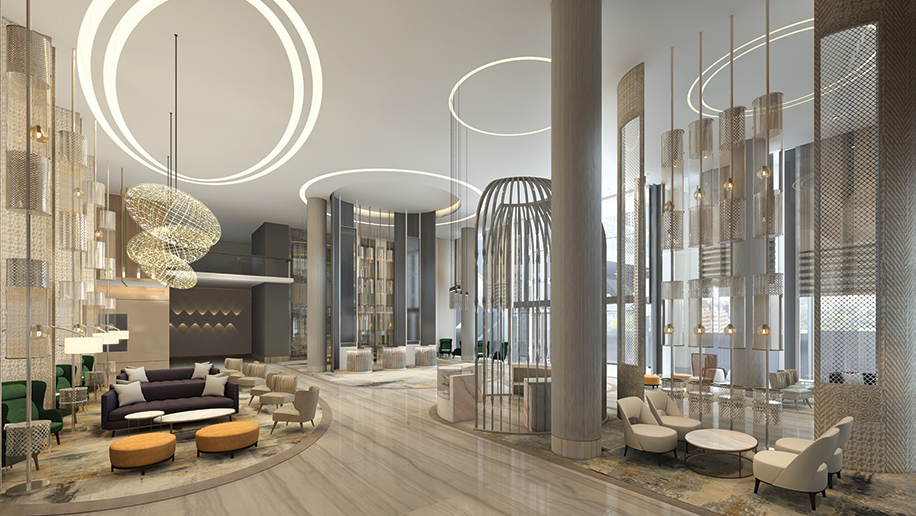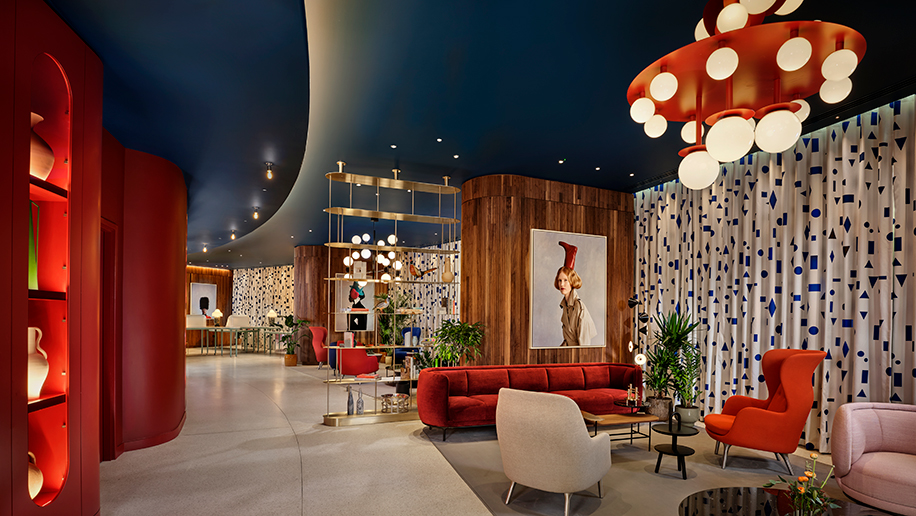
It’s an exciting time to be in the shoes of Elie Milky, vice president of development at Radisson Hotel Group, as he oversees an extensive region spanning the Middle East, Pakistan, Cyprus and Greece. Of these, the Middle East has seen an unprecedented boom in hospitality. Take for example Dubai which has for long been the bellwether for the health of hospitality in the region. It received 14.36 million international overnight visitors last year which was a 97 per cent year-on-year growth from the 7.28 million tourist arrivals it recorded in 2021. But those numbers tell only half the story. Data from the United Nations World Tourism Organisation (UNWTO) revealed that global tourist travel in 2022 was 37 per cent lower than in 2019. Yet, Dubai comfortably exceeded those pre-pandemic numbers with visitor arrivals reaching 86 per cent of its pre-pandemic levels. Arrivals in the larger region of the Middle East climbed to 83 per cent of its pre-pandemic numbers.
“In some markets we have exceeded our pre-pandemic numbers,” says Milky, about the recovery at Radisson’s properties within the region which currently stands at 53 operational properties, and 11,600 keys. “In markets such as Riyadh, we have exceeded pre-pandemic levels. We’ve had a fantastic past year in Qatar because of the World Cup. Other markets like the Eastern Province in Saudi Arabia, Oman, Bahrain and Kuwait have not recovered to pre-pandemic numbers yet. But the investments focus on Bahrain and Kuwait has been much stronger than it was ever before.”

In Bahrain, he says, Radisson is now considering a third property along with its existing owners there. He adds that government initiatives in that country specifically from bodies such as the Bahrain Economic Development Board are aimed at seeing through its goal of attracting 14.1 million tourists by 2026. Milky who is based in Dubai, said that the emirate can serve as a case study for how Bahrain can get to those numbers. “What makes Dubai so attractive, is that it has so many hospitality segments – MICE properties, city hotels, and a lot of beach resorts. That’s what makes it very successful and less seasonal. If Bahrain develops more beach resorts, it will attract more year-round arrivals, and less seasonal-dependent demand.”
Regionally, the growth for Radisson is expected to come through two major segments: beach resorts and serviced apartments. “Most of our activity as a company is towards these two hospitality models. Half of our signings in all regions in Europe, the Middle East and Africa have been resorts in recent years,” he says. In the UAE, Radisson already had beach properties in Abu Dhabi, Fujairah and Ras Al Khaimah. In November last year, it opened its first beach resort in Dubai called the Radisson Beach Resort Palm Jumeirah. “We have nine hotels in Dubai. It’s a wish and not a target yet, but by 2030 we would like to double that number in Dubai. In the UAE, we’ve got almost 20 hotels, we believe we should be able to hit 30 hotels by 2030.”

Apart from beach resorts, the other high-growth segment for Radisson is poised to be serviced apartments. “Around 20-30 per cent of our signings in the region in recent years have a serviced apartments component built into it. The recently opened Mansard Riyadh, A Radisson Collection Hotel has 30 per cent of its inventory as serviced apartments, the Radisson Hotel Riyadh Airport has around 40 per cent of its inventory as serviced apartments, and the Radisson Blu Diplomatic Quarter is a fully serviced apartments operation. We’re opening the Radisson Residences in Makkah which is a serviced apartment standalone property located next to two Park Inn by Radisson properties.
“Serviced apartments have proven during the pandemic, and even pre-pandemic, to be the most resilient hospitality model. During the pandemic, many hotels lost money, but serviced apartments were the only hospitality model that made money. Why? Because of the high demand for more space and the lower staff- to-room ratio, which also meant a lower cost structure for
the operators.”
Active government initiatives, notes Milky, are vital to the growth of hospitality within the region. The UAE, for example, launched a UAE Tourism Strategy 2031 that aims to attract Dhs100 billion as additional tourism investments. It also aims for the tourism sector to contribute Dhs450 billion of GDP by then, and for the country to receive 40 million hotel guests annually too. In Saudi Arabia, the Tourism Development Fund was established by way of a Royal Decree to aid tourism investments in the kingdom to attract 100 million annual visits by 2030. “The Tourism Development Fund is facilitating investments in the kingdom and connecting owners, developers and investors. They are funding projects that are stalled. For example, the Radisson Blu Al Ahsa was signed in 2018-2019, but the owner ran out of cash a couple of years later. The Tourism Development Fund stepped in and financed that project and revived it. We’re working with the Tourism Development Fund to create a framework to do more hotels together, where we bring investors to them to fund the projects and they bring investors to us to partner with. Their focus is on secondary cities, and so we’re looking along with them at several locations – Tabuk, Ha’il, Abha, Taif, Khamis Mushait – where we are not present yet,” says Milky.
Saudi Arabia’s sovereign wealth fund, the Public Investment Fund (PIF), has backed some of the kingdom’s giga projects including Neom, Red Sea Global, Qiddiya and Diriyah Gate. And Radisson is keeping a close watch on the developments of these projects, each of which is being built with multi-billion dollar budgets. “We’ve announced the Radisson Red with Diriyah Gate which will open in three years and will launch that brand in the kingdom. With Diriyah, we believe we could sign our second hotel because of a strengthened relationship that we have with the Diriyah Gate Development Authority. We’re looking at Qiddiya entertainment city where we could have at least four-five hotels. We’re looking at some opportunities with Neom. The Red Sea development started with ultra-luxury brands which sit above our Radisson Collection brand and hence it didn’t include us.”

Elsewhere in the kingdom, Saudi Arabia has 26 operational Radisson hotels including the Mansard Riyadh, A Radisson Collection Hotel and Nofa Riyadh, A Radisson Collection Resort which are part of the group’s luxury lifestyle collection, as well as Radisson Hotel Riyadh Airport which opened last year. Radisson’s pipeline for the kingdom includes the Radisson Blu Riyadh Convention and Exhibition Centre which will open this month. “That’s a 200-plus key property and is being opened with the Riyadh Chamber of Commerce. After the opening of that property, we expect to shift our activity to Makkah where we’re opening two-three hotels before the end of the year. We’re also looking at Rua Al Madinah, along with PIF, where we could do 3,000 keys in phases one and two.”
As Radisson’s expansion in the kingdom continues, apart from opening up an office within the country, it is also training Saudi nationals to take up key roles. A few months ago it launched the Concierge Navigation to Success programme that aims to upskill Saudi nationals in the hospitality industry. “In Saudi, we’re getting more and more Saudis wanting to work in the hospitality industry. And programmes like the Concierge Navigation help, because we have a good talent pool there and we can train them to staff the hotels [with the goal of] Saudisisation.”
In the regions that Milky oversees, he finds that hotels are becoming more efficient with their workforce to cope with a shortage of skilled labour. “In the region, we previously had high-cost structures compared to the European models. In the Middle East, the staff-to-room ratio was one-to-one. In Europe, they were running as half-to-one. The pandemic made us more efficient, and we started operating like the European model. We began clustering operations too,” says Milky.
Milky notes that the current Radisson mandate would be to introduce new brands in the region. These will include its five-star upper upscale lifestyle brand Art’otel, as well as Prizeotel in the efficient midscale tier. “We can see Art’otel launched in locations in Saudi Arabia such as Diriyah and Jeddah Old Town which has a strong focus on local culture and heritage. We can easily have 5-10 Art’otel properties in key heritage locations in Saudi Arabia. Prizeotel is our economy lifestyle brand. We’re looking for developers with large land banks who want to roll out 10-20 hotels from this brand in one go because these are compact real estate propositions for investors.
“2023 onwards will see us making more announcements around new brands and more strategic agreements. That’s something that I’m driving personally.” An exciting time to know Milky.












